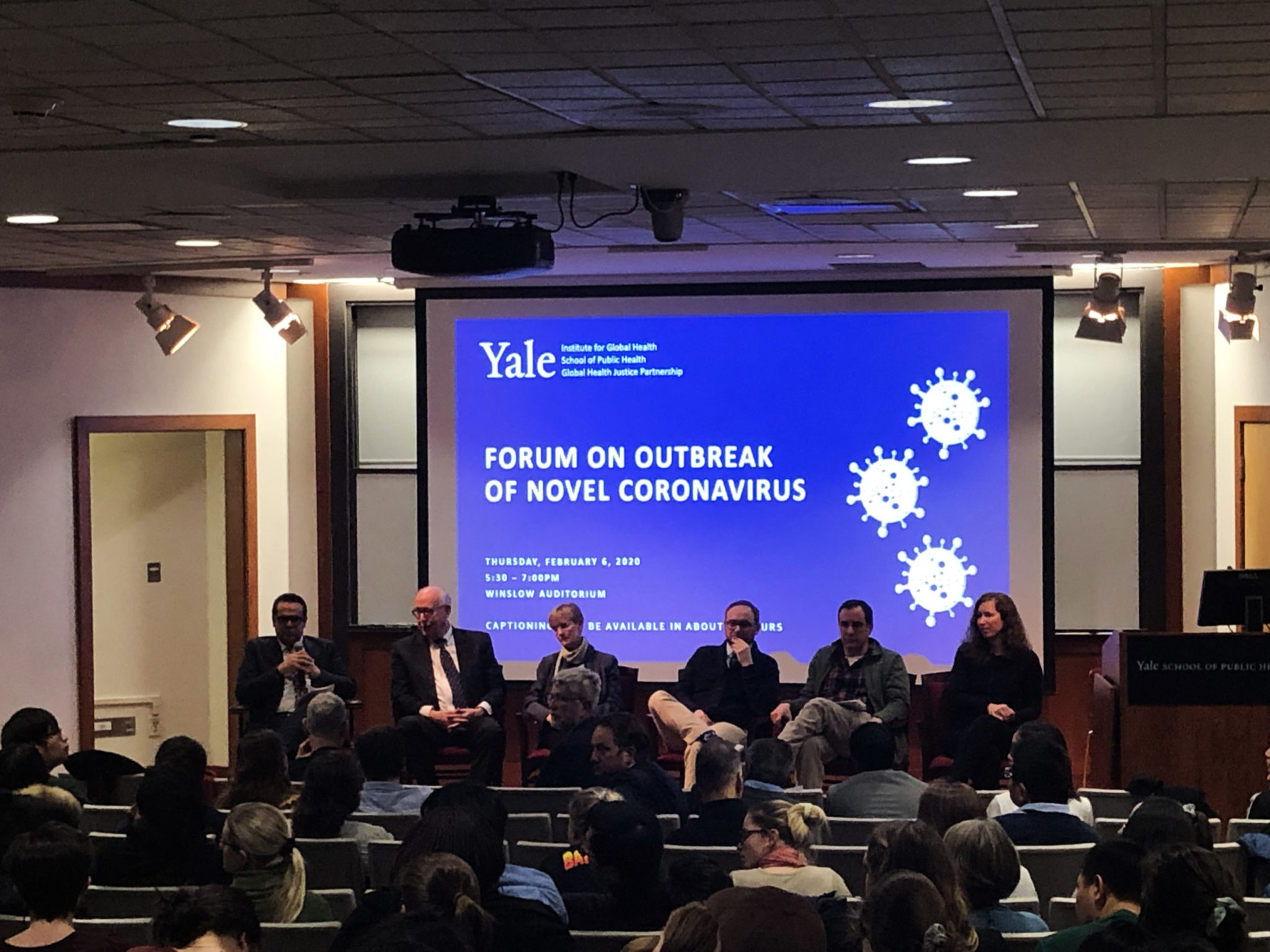
David Guo
The Yale School of Public Health hosted a public forum on the outbreak of the coronavirus on Wednesday afternoon to discuss the threats posed by the epidemic and preventive measures that the community can implement.
The panel consisted of Yale Professors Saad Omer, Ellen Foxman, Gregg Gonsalves, Nathan Grubaugh, Lisa Sanders and David Vlahov. It marks the first time that Yale researchers have convened to discuss the global epidemic. The talk was attended by nearly 100 people, who spilled out the door and into another room where the discussion had to be broadcasted.
“Viruses can bring the best and worst out of people,” Omer said. “It is extremely important that we treat each other with respect and compassion. Yale is not a passive community, which also demands that we are active with our compassion.”
The panel began with a conversation about the origin of the virus. Grubaugh dismissed the false accusations on social media platforms, including Twitter, that the virus was engineered by man. “It certainly came from mammals,” Grubaugh said. Scientists believe that the virus was transmitted from mammals to humans in a market in Wuhan, China, where multiple tests for the coronavirus surfaced as positive.
According to Foxman, the major threat of the coronavirus derives from its novelty to the human population. The coronavirus is “not necessarily worse than other viruses that we know,” including Ebola and SARS, Foxman added. Humans are particularly vulnerable, she said, because the immune system cannot stave off viruses it has not yet encountered.
Genome expert Grubaugh said that the coronavirus, like all viruses, is undergoing a constant process of mutation, which has been a source of fear due to the influence of “American pop culture.” He added that it is likely that the coronavirus will adapt to the human population over time, but as in the case with Ebola and SARS, adaptation might not be correlated with higher death rates.
For preventive measures that individuals can take, Sanders emphasized the importance of washing hands.
“There is no evidence that wearing face masks will protect us from the disease,” Sanders said, “but just everyone washing their hands a little bit more often will get us a long way.”
Omer pointed to the benefits that the flu shot can have on general respiratory illnesses in addition to the flu. Although the shot does not directly protect against the coronavirus, Omer added, it can slow the spread of the virus by reducing the symptoms of respiratory illness.
Toward the end of the discussion, the panel underscored the responsibility that the science community bears to communicate accurate information and prevent the spread of misinformation. Omer called for an even more rapid peer review system to evaluate new research on the virus.
“Universities should be the guardians of evidence.” Omer said. “‘Lux and veritas’ is not an accident. Retractions of wrong data — and papers based on them — cannot completely eliminate their negative impacts. It is the responsibility for scientists to guard the veracity of information.”
Grubaugh added that just because of the sheer number of cases reported worldwide every day, underreporting is unavoidable due to overflow of data systems.
Every member of the panel agreed that there is still a lot unknown about the virus, but most of them agreed that there is reason to be confident about the current state of technology. According to Foxman, the genome of the coronavirus was posted online within a week of the outbreak. Although the steep cost of a single test prohibits widespread diagnostic testing, those with symptoms can now be diagnosed with ease.
The Yale School of Public Health was founded in 1915.
David Guo | ziyang.guo@yale.edu







